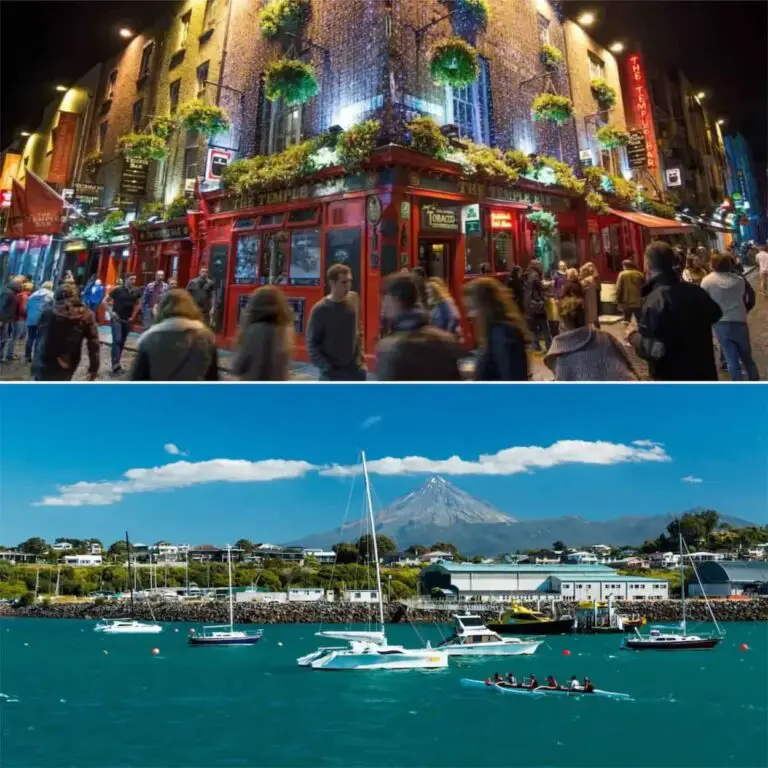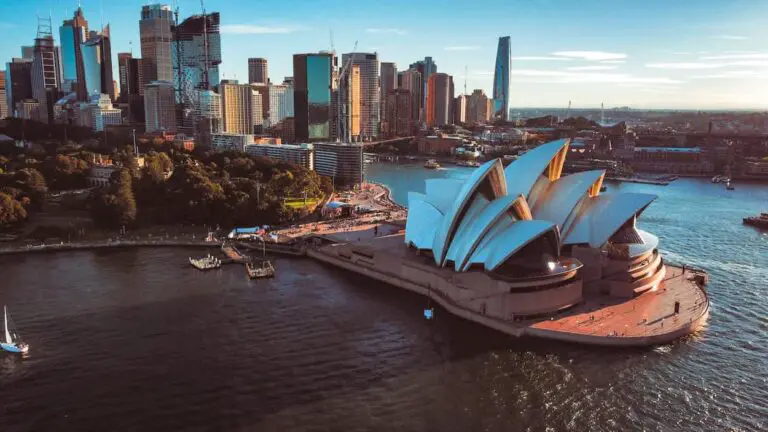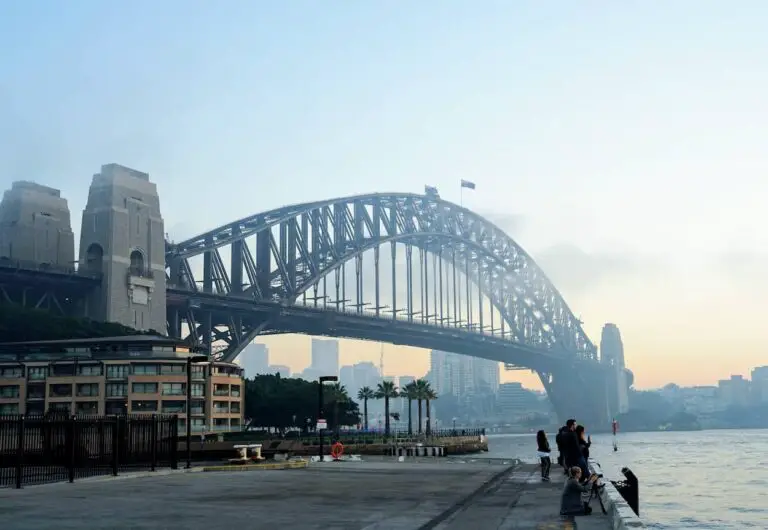Living in Auckland vs Melbourne – Which Is Better?
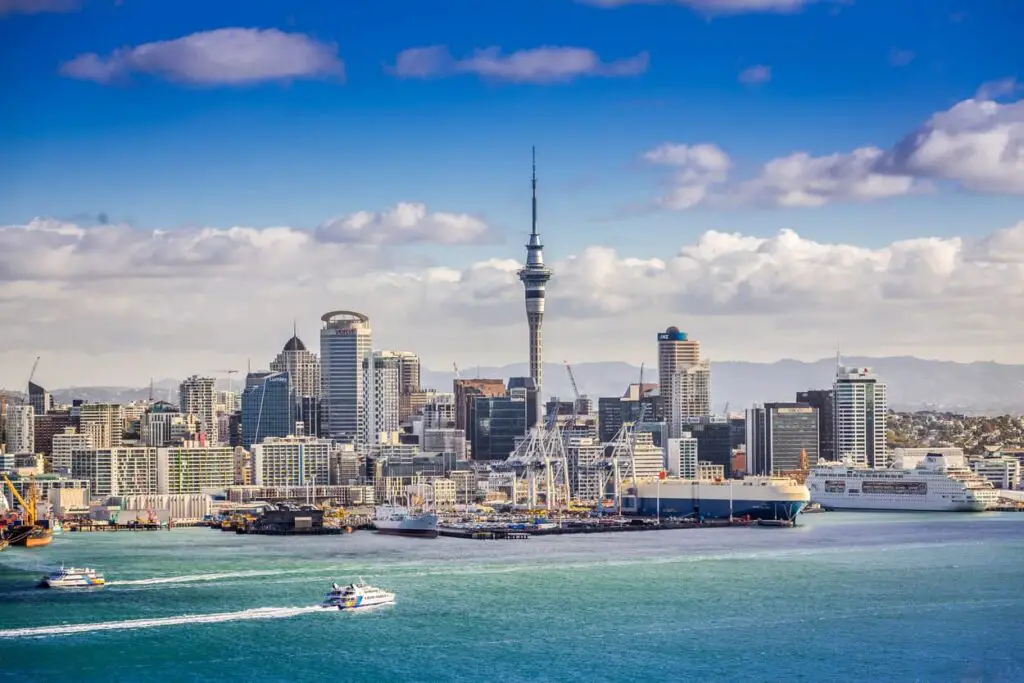
If you want to compare Auckland, New Zealand to Melbourne, Australia, it can be hard to know where to start. Melbourne has a population of just over 5 million people—and guess what? So does all of New Zealand. Auckland is 3 times smaller than Melbourne but offers a great lifestyle and a lower cost of living.
Auckland is better for families and people who want to avoid stress. However, you will have a higher salary in Melbourne. Melbourne is also great for young adults looking to experience life to the fullest.
Yes, Auckland is most definitely a city, but it’s not a particularly large one. So, if you crave the atmosphere and fast-paced fun of a big city, Melbourne might be the best choice for you. But if you prefer a smaller place (that happens to be in New Zealand), Auckland clearly takes the cake.
Maybe we’re biased, but we do happen to think New Zealand is the nicer place to live, although Auckland isn’t the best place to live in our wonderful country. Read on the top places to live in New Zealand.
Pros for Auckland
Sorry Melbourne, but Auckland is simply a prettier city. The landscape is stunning, with more than 48 dormant (supposedly) volcanoes dotted throughout the city, making it a pretty hilly place. You’re also only a very short distance to Rangitoto Island or Waiheke Island. Melbourne, you’re perfectly decent-looking, but you’re just not as beautiful as Auckland.
We’ll discuss the cost of living in both Auckland and Melbourne in detail just a little later. Auckland’s cost of living may seem high, but rest assured—it’s not as high as Melbourne, or that high on a global level. When compared to Australian cities, Auckland offers a good quality of life at a good price.
Ask any Kiwi, and they’ll tell you that Kiwis are more laid back than Australians. This also translates into work/life balance. When 5 pm rolls around, the average Aucklander is out the office door on their way home. It’s a bit different in Melbourne, where the corporate grind definitely grinds harder.
Auckland has all that stunning scenery right on its doorstep, and it fortunately also has weather that allows you to enjoy that scenery. The long, hot (and sometimes humid) summers are occasionally interrupted by dramatic summer rain, but the weather permits a fantastic range of outdoor activities.
One thing you’ll notice about Auckland is that even though it’s New Zealand’s largest city. It doesn’t have many of the problems associated with large cities. This is really noticeable with its air quality. The city enjoys a very low level of air pollution, and while smog isn’t totally absent, Auckland’s air quality is generally pristine.
Kiwis are mostly a very tolerant and welcoming group of people. This extends to the LGBTQIA+ community. Same-sex marriage has been legal since 2013, and Auckland features a small (although spirited) LGBTQIA+ community.
Pros for Melbourne
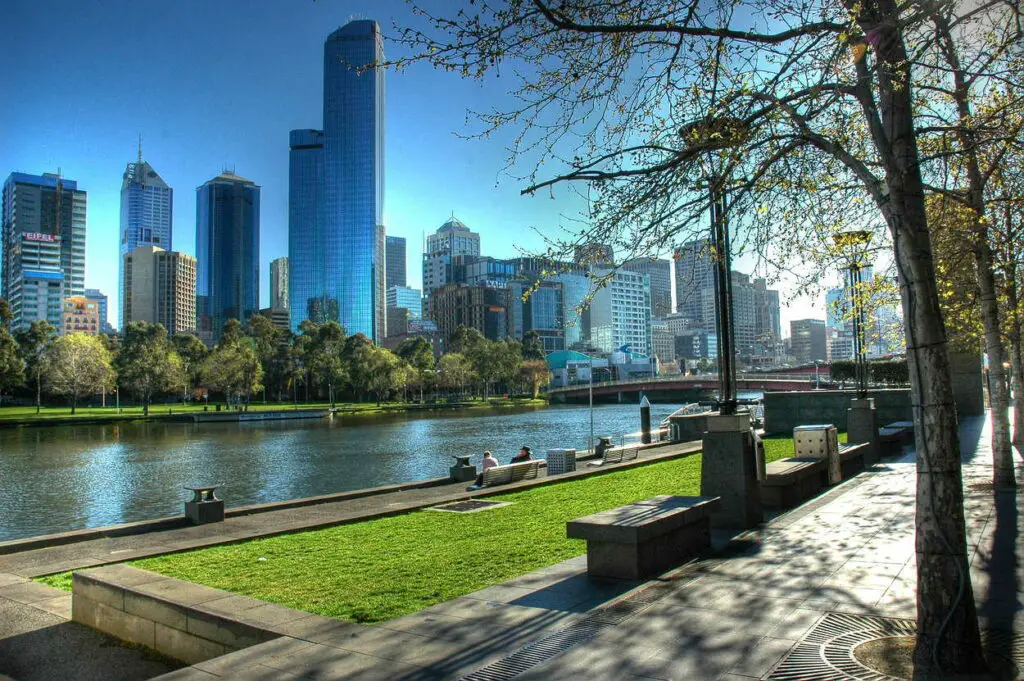
Melbourne’s size can be either a pro or a con. The city is large enough to get lost in, and it also has enough of a population that you can find something to do each and every night. Besides, paycheck and job opportunities are significantly better in Melbourne.
Your cultural options in Auckland feel much less than what you’d find in Melbourne. To put it simply, Melbourne feels like a big city, and Auckland sometimes doesn’t.
To learn more about how to move to Australia from New Zealand, read our guide.
Melbourne City Council has invested a lot of money in its infrastructure, more so than Auckland has done. This is really evident in public transport. Auckland’s public transport network leaves a lot to be desired, but Melbourne is exceptionally well-connected (despite their dodgy ticketing system). Melbourne uses a combination of trains, buses and incredibly beautiful trams—which have become a symbol of the city.
Melbourne’s size has given it a lot of hidden nooks and crannies, all just waiting to be discovered. The central city has a network of achingly beautiful laneways, each seemingly with its own identity. Start with Tattersalls Lane or Centre Place in downtown Melbourne.
Auckland punches above its weight in coffee culture, but it is definitely overshadowed by the abundance of coffee on offer in Melbourne. And it’s all amazingly good coffee, too. The city may well be the coffee capital of the world (even though you might want to avoid the coffee snobbery in some venues). And refreshingly—very few people seem to drink Starbucks.
Cons for Auckland
Auckland’s size can be a con for some new residents—especially those moving from larger cities. Sure, it’s New Zealand’s largest city, but it’s still relatively small. It’s a matter of opinion, but Auckland sometimes feels more like a town with tall buildings rather than a fully-fledged city.
Auckland’s roads are quickly becoming a battleground, the site of rush hour fury. You should attempt to live and work in the same area of Auckland, otherwise, you’ll spend a huge amount of time sitting in your car or on (inadequate) public transport.
Being able to live in an area of your choosing in Auckland can feel like a luxury. The city’s real estate market is notoriously competitive—as is New Zealand’s overall real estate market. Finding a place to live is challenging. One thing that remains constant is that Auckland’s real estate is by far the most expensive in all of New Zealand, and it’s amongst the most costly in the world.
Cons for Melbourne
We’ll discuss the cost of living in both Melbourne and Auckland a little later, but there’s one thing you should know—Melbourne is really quite an expensive place to live. The wages are somewhat higher than in Auckland, which helps to balance things out a bit. Or even a lot, depending on your circumstances.
Melbourne perhaps doesn’t have as good a work/life balance as Auckland (or indeed anywhere in New Zealand), but in this respect, Melbourne is nowhere near as bad as Sydney!
As an Australian city, Melbourne is doing itself a real disservice due to the fact that there are no decent beaches within easy reach of the city. St Kilda gets the job done if you really need a day at the beach, but Victoria’s best beaches aren’t in Melbourne—or even nearby.
Quality of life
Both Australians and New Zealanders are pretty content with their lot in life. The OECD (Organisation for Economic Cooperation and Development) better life index found that New Zealanders rate their satisfaction with life as 7.3 out of 10. Aussies have a life satisfaction of 7.1 out of 10. The global average of this satisfaction ranking is 6.7 out of 10.
To further examine the quality of life in each country, we need to look at the Global Liveability Ranking created by the Economist Intelligence Unit, the UK-based publisher of The Economist newspaper.
Melbourne topped this ranking for 7 years in a row and was the world’s most liveable city from 2011 to 2017. But Auckland topped the ranking in 2018, 2019, and 2021, so the margins are slim. In any event, both cities provide a top-notch quality of life.
Both cities enjoy a reasonably low crime rate. Melbourne’s overall crime rate is higher due to its significantly larger population, but Auckland’s per capita crime rate is higher. When ranking overall crime levels out of 100, Melbourne rates 44.82, with Auckland at 52.51.
Cost of living in Melbourne vs Auckland
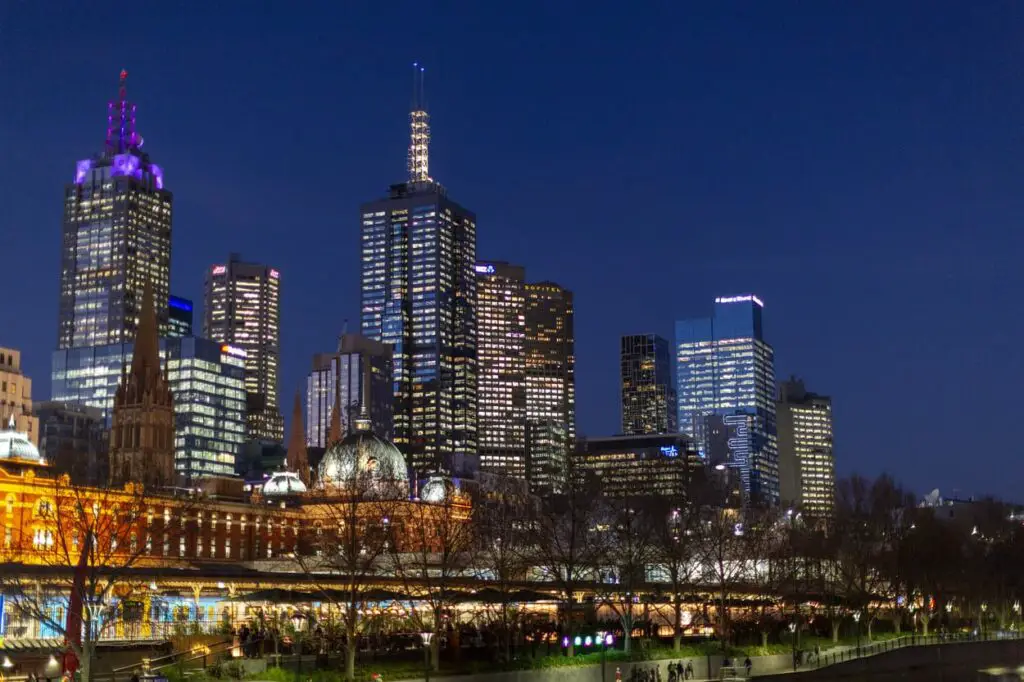
Melbourne is 13.2% more expensive than Auckland.
It’s a stretch to call either Melbourne or Auckland inexpensive places to live. That top-notch quality of life doesn’t come cheaply. Salaries in Melbourne tend to be considerably higher than in Auckland (which we’ll cover in a moment), but does that extra cash just get eaten up by the higher cost of living?
Talking about food, you pay 6.9% more for eating out in Melbourne vs Auckland. Prices on groceries range between the two cities, some items cost more in Auckland, some more in Melbourne.
Numbeo does a great job of assembling quality of life metrics, and they point out that someone in Auckland with monthly expenses of NZ$9,400 would need to spend NZ$10,040 to maintain that same quality of life in Melbourne. On the whole, consumer prices (including rent or mortgage payments) in Melbourne are 6.8% higher than across the Tasman in Auckland.
House prices
If you are thinking of buying a house, it’s overall cheaper in Melbourne. The median house price in metropolitan Melbourne is AU$934,000 (which is about NZ$1,002,105). This sounds pricey, but Melbourne’s real estate prices are reasonable when compared to Sydney—and are about the same or lower than in Auckland.
The median house price in Auckland is NZ$1,040,000—or only slightly more than in Melbourne. You get better value for money in Melbourne, though. There’s a greater range of housing stock, and it tends to be newer and well-insulated against Australia’s brutal weather.
Below are the median house prices in Melbourne in 2023:
| Property | Median price |
|---|---|
| All dwellings | AU$779,914 (NZ$831,556) |
| Capital city houses | AU$943,725 (NZ$1,006,213) |
| Capital city units | AU$610,490 (NZ$650,913) |
| Regional dwellings | AU$565,514 (NZ$602,959) |
At the same time, the median house price in Auckland is NZ$1,040,000, as of October 2023.
Here is an overview of rent prices in both cities:
| Auckland | Melbourne | Change | |
|---|---|---|---|
| Apartment (1 bedroom) in city centre | NZ$2,247 | NZ$2,591 | +15.3 % |
| Apartment (1 bedroom) outside of centre | NZ$2,133 | NZ$2,164 | +1.5 % |
| Apartment (3 bedrooms) in city centre | NZ$4,211 | NZ$5,166 | +22.7 % |
| Apartment (3 bedrooms) outside of centre | NZ$3,369 | NZ$3,380 | +0.3 % |
Family life
Which is the better city for raising kids? This depends on whether you want your kids to have an Aussie accent or a Kiwi accent!
In 2023, Compare the Market (a price comparison website) commissioned an extensive study to determine the best cities in the world to raise a family. Melbourne was ranked number 11, and Auckland was ranked number 6.
The fact that both cities ranked so highly is remarkable, but is Auckland really that much better for families? Its smaller size and proximity to nature make it family-friendly, and the New Zealand education system ranks higher than Australia’s.
However, both cities have excellent schools and universities.
The UN Human Development Index contains an education section, which helps to rank the quality of education from country to country. New Zealand comes in 3rd place, and Australia is in 10th place.
Job opportunities
Based on data from a number of different job vacancy websites, it’s possible to work out the most in-demand jobs in Melbourne. There’s some similarity between Australia and New Zealand, and even between towns and cities. The same jobs are in demand across both countries.
Anyone working in healthcare, education, and social assistance will find Melbourne’s job market to be very welcoming. Registered nurses are particularly in demand. The same applies (to a certain degree) over in Auckland. Registered nurses are also much-needed in New Zealand and can command a decent salary (up to NZ$135,000 for senior nurses).
Salaries
Melbournians make more money than Aucklanders. The average salary in Melbourne is AU$87,256 per year (which is roughly NZ$93,628). Over in Auckland, it’s NZ$79,079. Also, local purchasing power in Melbourne is 36.31% higher than in Auckland.
Earlier, we talked about the fact that you’d need more money in Melbourne to maintain the same quality of life as in Auckland. Considering the much higher wages an Aussie worker receives, careers in Australia are generally more lucrative. You have to pay it back in other ways, though, since the Melbourne work/life balance is often tipped in an employer’s favour.
Even jobs that don’t require qualifications can be well-compensated in Australia. A full-time retail assistant in Melbourne can expect a salary of around AU$69,475 (NZ$74,567). This is a little shy of the overall average wage in Auckland.
Taxes
Personal income taxes in both Australia and New Zealand are regulated at the national level (known as the federal level in Australia). Your tax obligations mostly depend on your income level, and where you live doesn’t play a role.
New Zealand doesn’t have a tax-free threshold. The tax rate starts at 10.5% (for an income up to NZ$14,000).
- An income of NZ$14,000 to NZ$48,000 has a tax rate of 17.5%.
- From over NZ$48,000 to NZ$70,000 has a tax rate of 30%.
- Anyone earning from over NZ$70,000 up to NZ$180,000 pays a tax rate of 33%.
- The highest tax bracket applies to income over NZ$180,000, with a rate of 39%.
Australia doesn’t impose tax on any earnings up to AU$18,200. After that, it gets a little complicated.
- The next tax bracket is for those earning AU$18,201 to AU$45,000, who must pay 19% for each dollar earned over the tax-free threshold.
- Anyone earning AU$45,001 to AU$120,000 pays 32.5% for each dollar over AU$45,000, plus AU$5,092.
- Those whose income is from AU$120,001 to AU$180,000 pay 37% for each dollar over AU$120,000, plus AU$29,467.
- The top tax rate is for those earning more than AU$180,001, which is 45% for each dollar over AU$180,000, plus AU$51,667.
| Taxable income | Tax |
|---|---|
| 0 – $18,200 | Nil |
| $18,201 – $45,000 | 19c for each $1 over $18,200 |
| $45,001 – $120,000 | $5,092 plus 32.5c for each $1 over $45,000 |
| $120,001 – $180,000 | $29,467 plus 37c for each $1 over $120,000 |
| $180,001 and over | $51,667 plus 45c for each $1 over $180,000 |
Weather and climate
Melbourne’s summers can be long and savage and come out of nowhere. It seems as though the springtime wind and rain won’t end until about December when summer kicks off—and kicks hard. The general unpredictability of Melbourne’s weather was the inspiration for the beloved Crowded House song, “Four Seasons in One Day.”
The city receives more than 2,380 hours of sunshine each year, but remember that this sunshine might only shine for a few hours before the weather changes abruptly.
Auckland is more prone to extreme weather events than Melbourne, and occasional blasts of torrential rain are common, as are long summers with a noticeable increase in humidity. It’s less sunny than Melbourne, with an average of 2,003 hours of sunshine each year.
Lifestyle
Both Auckland and Melbourne are extremely liveable cities, immune from the problems that plague many other cities around the world. Australia and New Zealand both have a lot to offer new migrants. With its cafe culture, masses of live music, and size, Melbourne is simply more of a city than Auckland.
However, Auckland perhaps has a better quality of life-related to the laid-back attitude of the average Kiwi. Comparing Auckland to Melbourne isn’t quite like comparing chalk and cheese, but they are very different places.
Of course, here at Simple New Zealand, you can no doubt guess which place is our favourite.

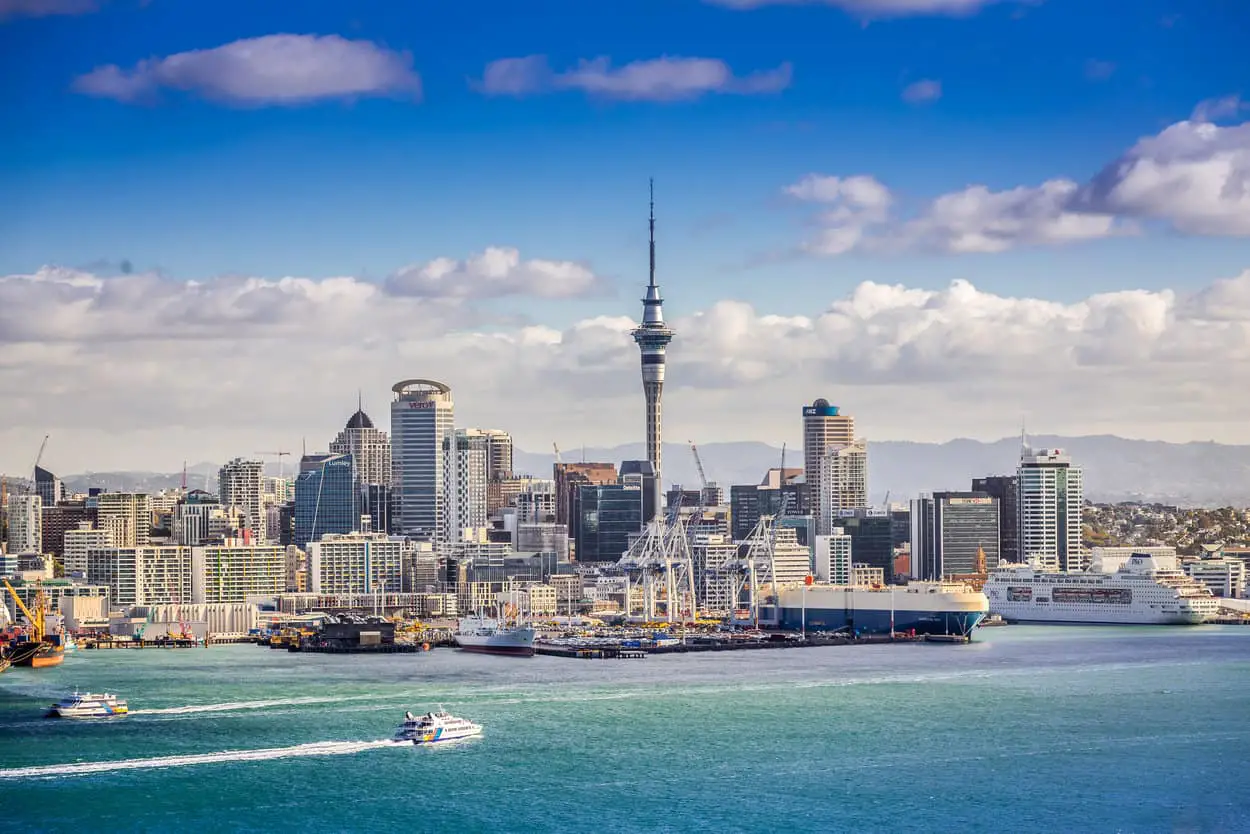
![New Zealand vs Singapore: Best For Living And Immigration [2024]](https://simplenewzealand.com/wp-content/uploads/2023/02/IMG_1983-768x576.jpg)
![Living in New Zealand vs South Africa [2024 Guide]](https://simplenewzealand.com/wp-content/uploads/2023/01/omer-faruk-bekdemir-5BuxuWIJF1Q-unsplash-768x432.jpg)
![Ultimate Guide To Cost of Living in New Zealand vs US [2024]](https://simplenewzealand.com/wp-content/uploads/2023/05/Blank-2-Grids-Collage-min-1-768x768.jpg)
